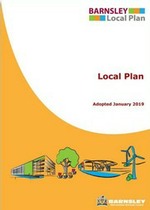

Biodiversity
Action
Plan
An ecological survey is required as part of a planning application if justified by the nature of the development site and its setting.
Planning applications then need to draw on the surveys and reports from ecologists and set out measures to avoid or mitigate adverse impacts or propose appropriate compensation.
- Avoidance – can significant harm to wildlife species and habitats be avoided for example through the choice of the site?
- Mitigation – where significant harm cannot be wholly or partially avoided, can it be minimised by the use of effective measures to reduce its extent, intensity and/or duration?
- Compensation – where despite mitigation, there would still be significant residual harm, as a last resort, can this be properly compensated for by measures to provide for at least an equivalent value of biodiversity? [See BNG requirement below]
Biodiversity Net Gain (BNG). There is now a requirement set out in the Environment Act 2021 for developments to deliver an overall net gain in biodiversity (of at least 10%), maintained for 30 years, either onsite, by offsite offsetting or in a combination of the two.*
Barnsley Council makes avoidance, mitigation and/or compensation measures the subject of planning conditions or obligations. Biodiversity Net Gain assessments are used in its consideration and determination of planning applications. Barnsley Council’s Biodiversity SPD was published in 2019 and updated in 2024.
Minimising any adverse impacts on biodiversity
Barnsley Council, in line with the NPPF, turns down planning applications if significant harm to biodiversity resulting from a development cannot be avoided, adequately mitigated, or, as a last resort, compensated for. [NPPF para 180a]. There is now a requirement for an overall net gain (>10%) in biodiversity for a development to be approved.
Adverse impacts may result from the design, may take place during construction, and some may follow from the site’s future use.
Adverse impacts on biodiversity include
- Loss of or damage to all or part of a important site for biodiversity
- Loss of important habitat features that support wildlife species in terms of food, water, breeding or shelter
- Habitat neglect or interruption to established management
- Habitat fragmentation and isolation
- Loss or severance of wildlife corridors
- Soil, air or water contamination, pollution, impact of light or noise
- Spread of invasive species
- Increased predation or disturbance and displacement of wildlife.
Irreplaceable habitats
Where loss or deterioration of irreplaceable habitats (such as ancient woodland or veteran trees) would result from development, the NPPF requires LPAs to refuse the application unless there are wholly exceptional reasons and a suitable compensation strategy exists. [NPPF 180c]
It is clear that irreplaceable habitats such as ancient woodland and indeed old species-rich grassland cannot be ‘replaced’ by simply planting trees or sowing wildflower seeds.
Sites of Special Scientific Interest
The NPPF states that development on land within or outside a SSSI and which is likely to have an adverse effect on it … should not normally be permitted.
The only exception is where the benefits of the development in the location proposed clearly outweigh both its likely impact on the features of the site that make it of special scientific interest, and any broader impacts on the national SSSI network. NPPF 180b
Biodiversity Net Gain*
The Environment Act 2021 stipulates a mandatory net gain in biodiversity for developments requiring planning approval.
It requires at least a 10% increase in biodiversity after development, compared to the level prior to the development taking place, as measured by a Defra metric. This statutory requirement applies from November 2023 (small sites April 2024).
This may be onsite, by offsite offsetting or through a combination of the two. Offsite credits for net gain may be purchased through BNG Habitat Banks. Landowners and managers can bring forward sites for BNG credits.


Biodiversity Mitigation